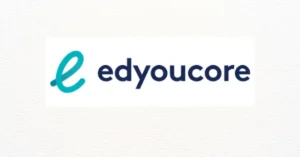In a landscape increasingly shaped by digital complexity, one truth remains constant: visibility matters. Search engine optimization (SEO), long seen as the dark art of keyword stuffing and link wrangling, has transformed into a highly strategic, AI-powered capability at the heart of agile business growth.
At the confluence of these trends lies an emerging force: AI SEO tools designed specifically to support scale agile solutions. These are not just marketing tools—they are operational engines for modern organizations navigating volatile search ecosystems, algorithmic opacity, and intensifying competition.
This long-form investigation, written in the critical and narrative style of The New York Times, explores how AI SEO tools are enabling agile-scale strategies in 2025—turning analytics into foresight, automation into acceleration, and content into competitive advantage.
A Changing Definition of SEO
To understand the rise of AI SEO tools in agile environments, we must first redefine what SEO means today. Once relegated to meta tags and page speed, SEO in 2025 encompasses:
- Structured data engineering
- Voice search readiness
- Mobile-first and Core Web Vitals alignment
- Real-time intent modeling
- Cross-platform SERP (Search Engine Results Page) optimization
And AI, integrated with agile methodology, ensures these moving parts are handled not just faster—but smarter.
Why Scale Needs Agility—and Agility Needs AI
Modern businesses operate in conditions of constant iteration. Agile, once a term native to software teams, now drives marketing, operations, and even finance departments.
Agility, in SEO terms, means:
- Rapid keyword lifecycle testing
- Continuous on-page and off-page optimization
- Instant response to algorithmic shifts
- Scalable deployment of content updates across thousands of pages
This is where AI SEO tools—platforms that ingest, analyze, and act on vast datasets—become essential. Tools like these allow small teams to perform at enterprise level and allow enterprises to operate like nimble startups.
Key Features of AI SEO Tools in 2025
1. Predictive Keyword Modeling
AI SEO tools now predict keyword trends before they peak. Using NLP and big data scraping, tools detect:
- Shifting semantic patterns
- Rising intent clusters
- Niche keyword opportunities
This allows agile teams to launch campaigns weeks ahead of slower competitors.
2. Dynamic Content Scoring
Tools like Clearscope AI or TopicNeuron grade live content against SERP competitors in real time, offering:
- Readability scores
- Topical coverage diagnostics
- Semantic gap analysis
Writers can iterate as they draft—no waiting for post-publication analytics.
3. SERP Intelligence Dashboards
AI-powered dashboards monitor thousands of keyword positions across countries and devices. Features include:
- AI anomaly detection (e.g., sudden ranking drop alerts)
- SERP feature tracking (e.g., rich snippets, featured videos)
- Sentiment and brand presence overlays
This visibility enables real-time response planning within agile sprints.
4. Content Generation and Expansion
While still requiring human refinement, AI now drafts:
- First-draft long-form content (via GPT-style models)
- FAQ sections and schema-marked content
- Multilingual expansions for regional SEO strategies
For agile teams, this means less bandwidth lost to mechanical drafting.
Case Study: Scaling Agile SEO in a SaaS Ecosystem
Company: TrackFlow, a B2B SaaS project management firm
Challenge: Rapid growth into six new regional markets while maintaining SEO visibility
Solution: AI SEO tools integrated into their agile DevOps stack. Key actions included:
- Predictive keyword research synced with product feature releases
- Programmatic creation of localized landing pages
- Real-time SERP health checks in daily stand-ups
Outcome:
- 36% increase in organic leads
- 58% improvement in page indexing time
- 12x higher ROI from blog content across regions
Benefits to Scale Agile Frameworks
AI SEO tools map neatly to the pillars of Scaled Agile Framework (SAFe):
- Team and Technical Agility: Real-time technical audits of site architecture
- Agile Product Delivery: SEO insights aligned with product roadmaps
- Enterprise Solution Delivery: Central dashboards for multi-domain oversight
- Lean Portfolio Management: SEO KPIs fed into executive-level decision dashboards
This makes SEO a strategic, not tactical, discipline.
Voice, Visual, and Multimodal Search
AI SEO tools are also shaping how brands prepare for non-text search:
- Voice optimization: AI analyzes speech-based queries to adjust long-tail content
- Visual search tagging: Auto-labeling of images and alt text for image-based engines
- Multimodal tracking: Combining visual, text, and voice data in unified search journeys
As consumer behavior fragments across modalities, AI SEO ensures cohesion.
Privacy-First Optimization
With increasing restrictions on third-party cookies and personal data use, AI SEO platforms have adapted:
- Contextual targeting (instead of behavioral)
- First-party analytics modeling
- Privacy-grade intent prediction
This compliance-first SEO ensures scale doesn’t mean surveillance.
Challenges and Ethical Questions
AI SEO tools also raise questions:
- Does AI-generated content dilute creativity?
- Who owns algorithmically suggested strategies?
- How transparent are these systems in weighting search outcomes?
Forward-thinking platforms now embed explainability layers—highlighting why certain changes are suggested or how data is interpreted.
Emerging Tools in 2025
- NeuraSEO: Emotional resonance mapping for search content
- AgileRank: Integrates with Jira and Asana to prioritize SEO tasks
- OptiMesh: Interlinks pages automatically based on performance predictions
- SentientMarkup: Dynamic schema generation aligned with SERP intent
These tools are no longer just for SEO professionals—they’re for cross-functional teams driving holistic digital strategies.
Education and Internal Adoption
Organizations serious about integrating AI SEO into scale agile solutions must:
- Train product owners and content strategists in AI-assisted workflows
- Establish SEO sprint ceremonies
- Include SEO KPIs in quarterly OKRs
AI tools reduce the grunt work—but teams must still think critically.
Looking Ahead: The Future of AI SEO in Agile Contexts
By 2026, analysts predict:
- 60% of SEO strategies will be partially AI-authored
- Agile marketing teams will use live SEO dashboards as core planning tools
- AI SEO performance will be benchmarked like sales revenue or customer NPS
AI SEO won’t just be a tool—it will be an institutional muscle.
Final Thoughts
AI SEO tools and scale agile solutions represent a convergence of two digital priorities: intelligence and adaptability. In a fast-moving environment where search rankings shift with user trends and algorithm updates, the companies that succeed won’t be the biggest—but the fastest to learn, optimize, and deploy.
AI SEO makes that speed possible. Agile makes that speed sustainable.
Together, they form the new operating system of competitive digital growth in 2025.
For more information, click here.









